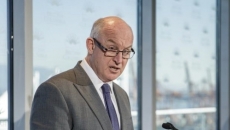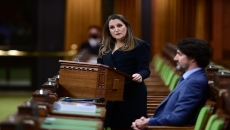Experts and advocates say countrywide government measures aimed at putting housing within reach of more Canadians mark a step in the right direction, despite a few misses and ham-fisted moves.
Yesterday's federal budget promised $2.4 billion over five years for affordable housing and followed through on a pledge to tax foreigners who own vacant homes in Canada.
Vancouver Mayor Kennedy Stewart and Toronto Regional Real Estate Board president Lisa Patel both applauded the commitments for trying to tackle affordability as real estate prices soar across the country, though Patel questioned whether a vacancy tax would make a dent in prices or supply.
Canada's #Budget2021 is a welcome blueprint for how cities can work directly w/ Ottawa to put investments to work for Canadians & get through #COVID19:
— Kennedy Stewart (@kennedystewart) April 19, 2021
$1.5B for Rapid Housing Initiative
$567M to fight homelessness
$116M for Substance Use & Addictions Program#vanpoli #cdnpoli
Prof. Tsur Somerville, a real estate expert at the University of British Columbia's Sauder School of Business, cast doubt on whether a national tax for a price problem particular to urban and suburban areas was appropriate, saying cottage country as well as tourist hot spots such as Banff and Mont Tremblant could suffer.
Jill Atkey, CEO of the B.C. Non-Profit Housing Association, says she welcomed the budget's one-year, $1.5-billion extension of the popular Rapid Housing Initiative, which funds construction of modular homes and conversion of existing properties into residences.
However, she says she was "profoundly disappointed" the 739-page document did not carve out an urban, rural Indigenous housing strategy, first promised by the Liberal government in 2017.

.jpg)




